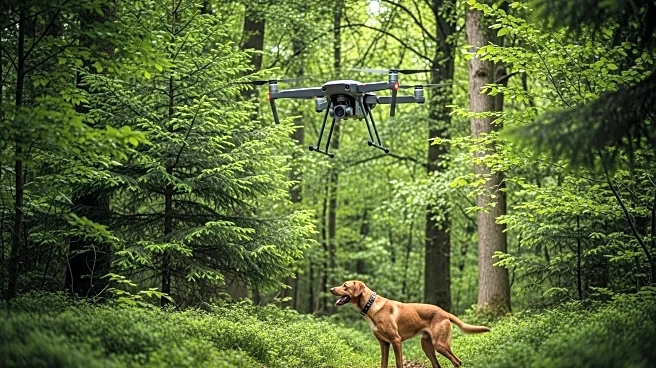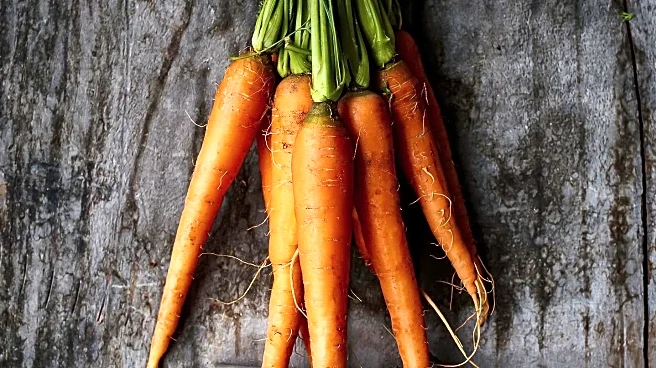What's Happening?
The UK government is employing innovative methods, including drones and sniffer dogs, to combat the spruce bark beetle, Ips typographus, which poses a significant threat to the country's forests. This beetle has devastated spruce trees across Europe, and the UK is taking proactive measures to prevent its spread. The beetles, which thrive under the bark of spruce trees, have been carried to the UK by winds from the continent. The government has successfully eradicated the beetle from at-risk areas in the southeast and east of England. The use of drones allows for large-scale forest surveillance, while sniffer dogs are effective in detecting beetles in timber stacks. Additionally, cameras on bug traps provide real-time identification of the beetles.
Why It's Important?
The spruce bark beetle poses a significant threat to the UK's forestry industry, which relies heavily on Sitka spruce for timber. The potential economic impact is substantial, with the beetle threatening forests valued at £2.9 billion annually. The government's efforts to control the beetle are crucial to protecting this economic resource and preventing widespread ecological damage. The beetle's ability to exploit trees stressed by climate change underscores the importance of these measures. The success of the UK's eradication efforts serves as a model for other countries facing similar threats.
What's Next?
The UK government plans to continue its efforts to monitor and control the spruce bark beetle population. This includes ongoing surveillance using drones and sniffer dogs, as well as collaboration with the University of Cambridge and the Met Office to predict future incursions using advanced modeling techniques. The government is also considering increased funding for woodland preservation, focusing on both new tree planting and the protection of ancient woodlands. Stakeholders, including The Woodland Trust, advocate for comprehensive support to restore affected areas and maintain biodiversity.
Beyond the Headlines
The battle against the spruce bark beetle highlights broader issues related to climate change and global trade. The beetle's spread is exacerbated by changing weather patterns, which stress trees and make them more susceptible to infestation. Additionally, the movement of pests through global trade underscores the need for stringent biosecurity measures. The situation also raises ethical considerations regarding the balance between commercial forestry and the preservation of ancient woodlands, which are vital for biodiversity and carbon capture.









